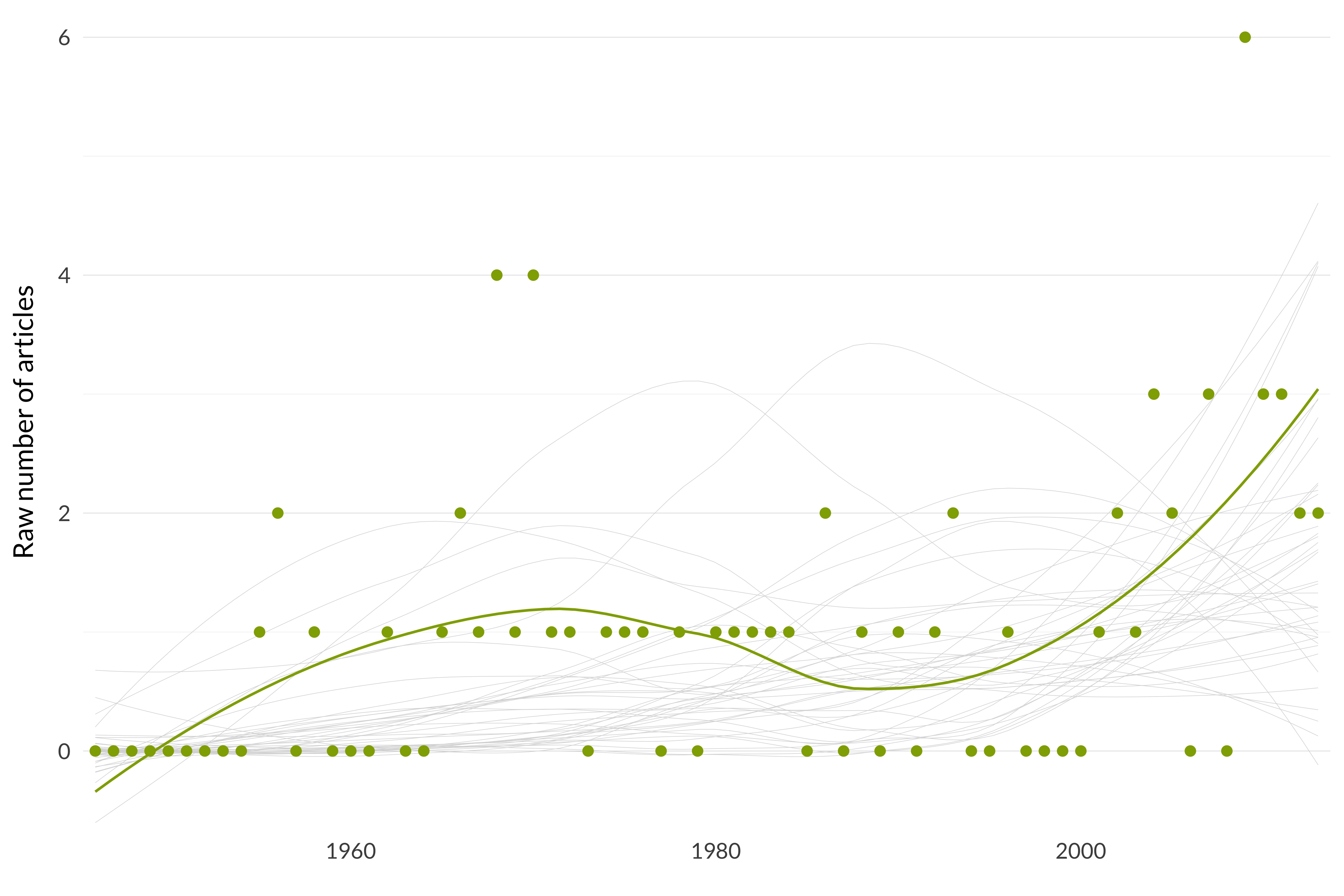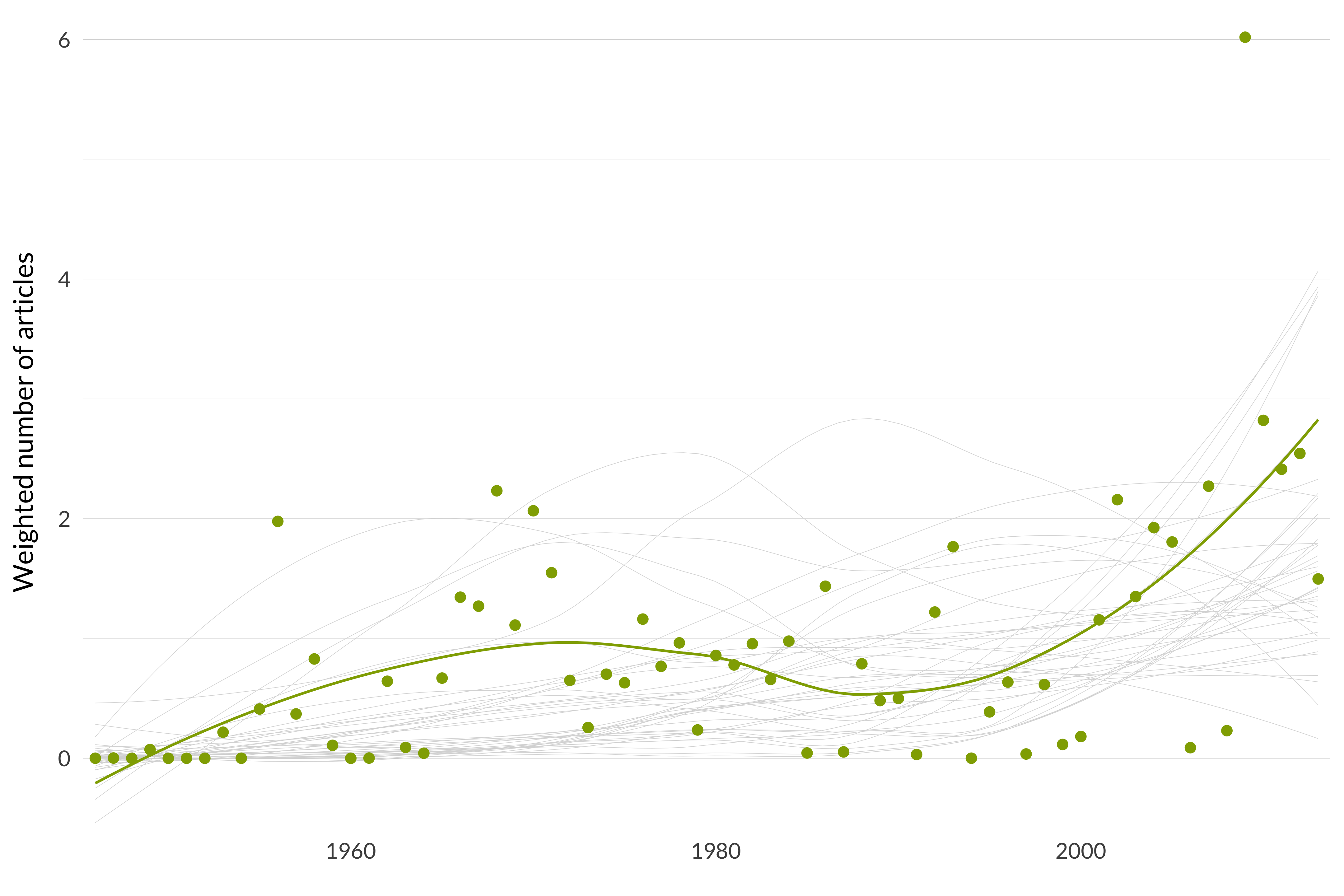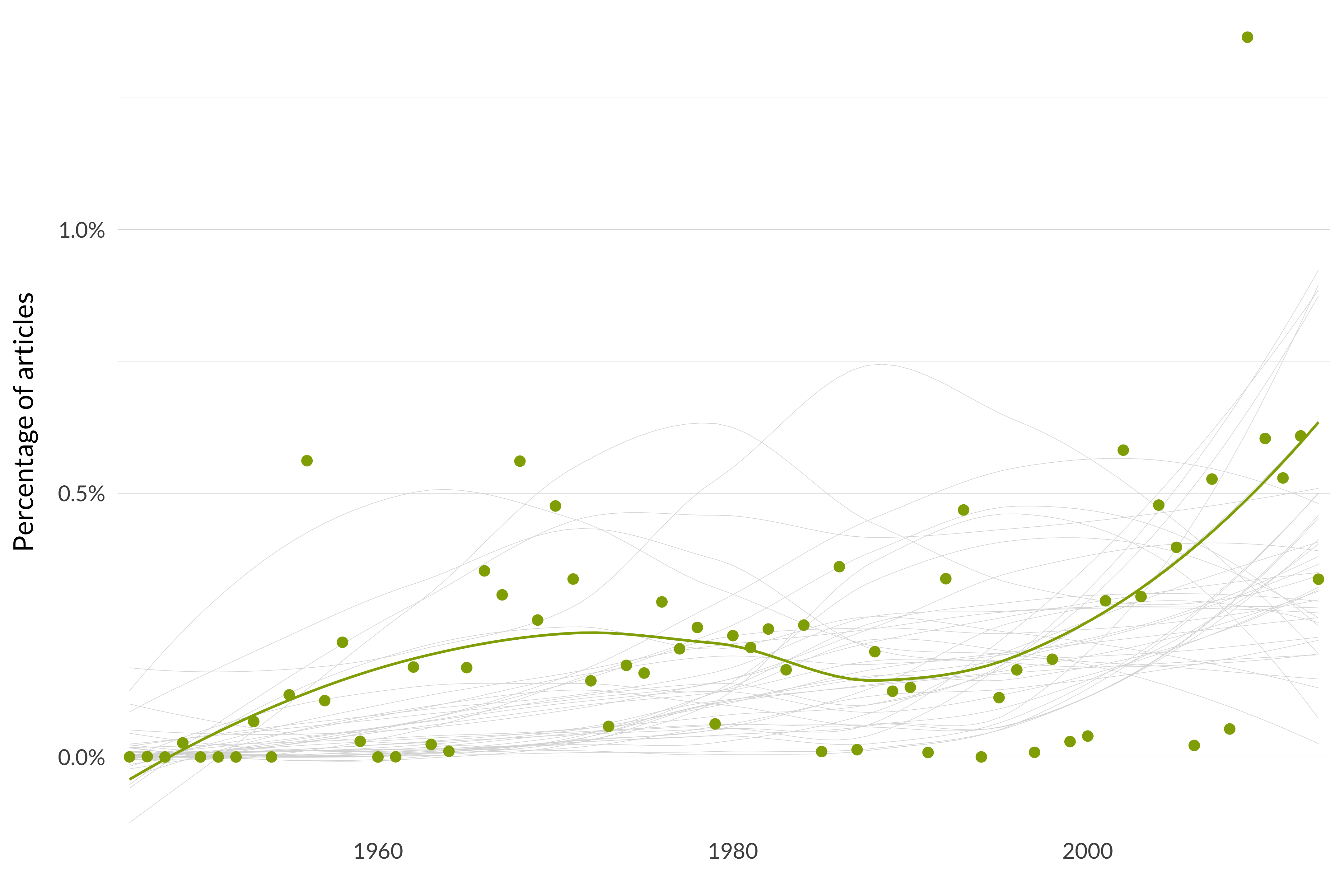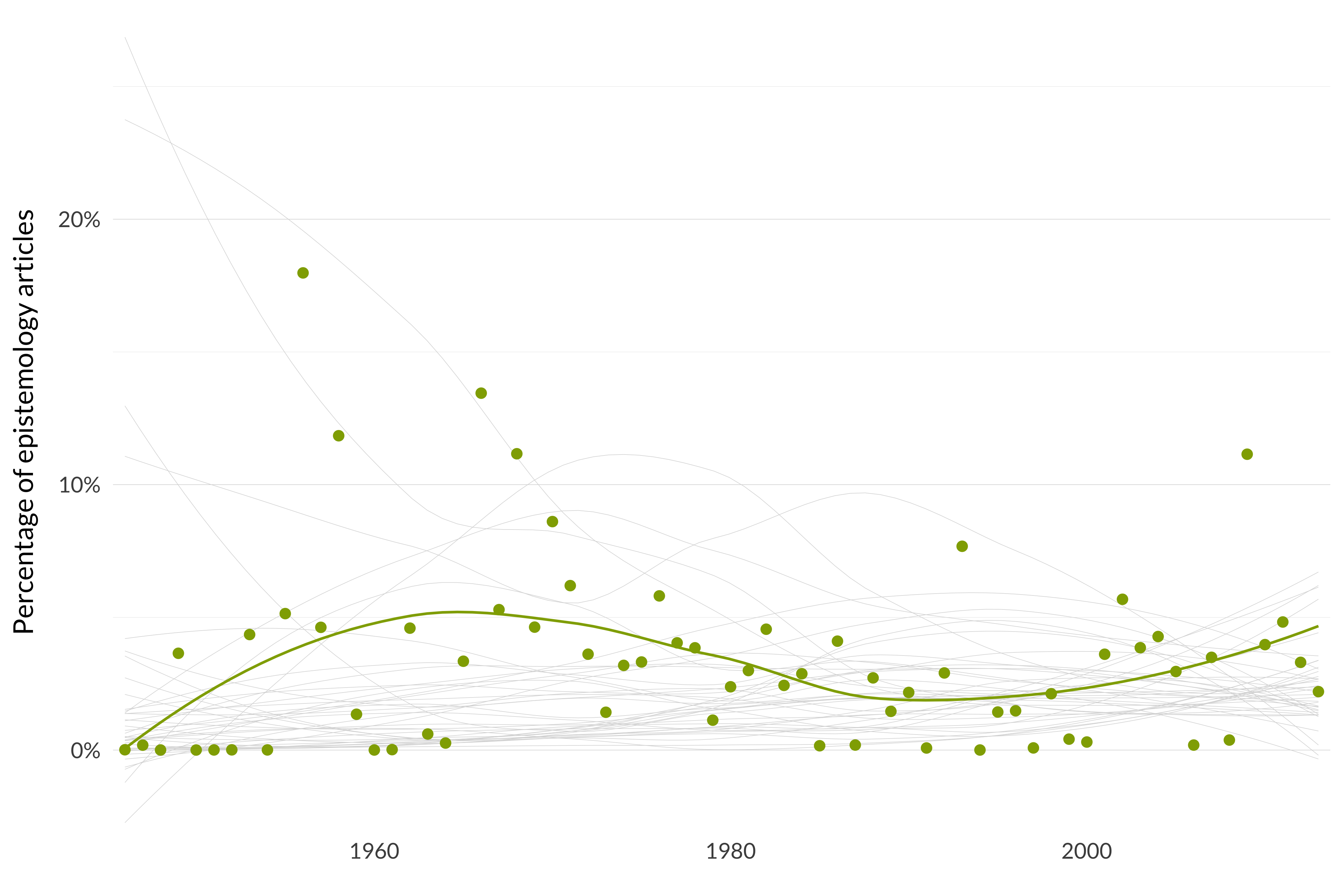6.10 Know-How
Keywords: stanley, mary, knowing, ascriptions, questions, jackson, answer, knows, propositional, john, english, imagine, capacity, ability, williamson
Number of articles: 65
Weighted number of articles: 59.22904

Figure 6.45: Raw number of articles in topic 10, know-how.

Figure 6.46: Weighted number of articles in topic 10, know-how.

Figure 6.47: Percentage of philosophy articles in topic 10, know-how.

Figure 6.48: Percentage of epistemology articles in topic 10, know-how.
Characteristic Articles
- Maria Aloni and Paul Égré, 2010, “Alternative Questions and Knowledge Attributions,” The Philosophical Quarterly 60:1–27.
- Jason Stanley, 2011, “Knowing (How),” Noûs 45:207–38.
- Arnold Zuboff, 1992, “A Presentation Without an Example?,” Analysis 52:190–1.
- John Hartland-Swann, 1956, “The Logical Status of ‘Knowing That’,” Analysis 16:111–5.
- Ian Rumfitt, 2003, “Savoir Faire,” Journal of Philosophy 100:158–66.
- Alva Noë, 2005, “Against Intellectualism,” Analysis 65:278–90.
- Jason Stanley and Timothy Williamson, 2001, “Knowing How,” Journal of Philosophy 98:411–44.
- Berit Brogaard, 2009, “What Mary Did Yesterday: Reflections on Knowledge-Wh,” Philosophy and Phenomenological Research 78:439–67.
- Rowland Stout, 2010, “
what You Know When You Know an Answer to a Question ,” Noûs 44:392–402. - Yuri Cath, 2009, “The Ability Hypothesis and the New Knowledge-How,” Noûs 43:137–56.
Highly Cited Articles
- Colin Radford, 1966, “Knowledge: By Examples,” Analysis 27:1–11. (0.4918852)
- Alva Noë, 2005, “Against Intellectualism,” Analysis 65:278–90. (0.9862041)